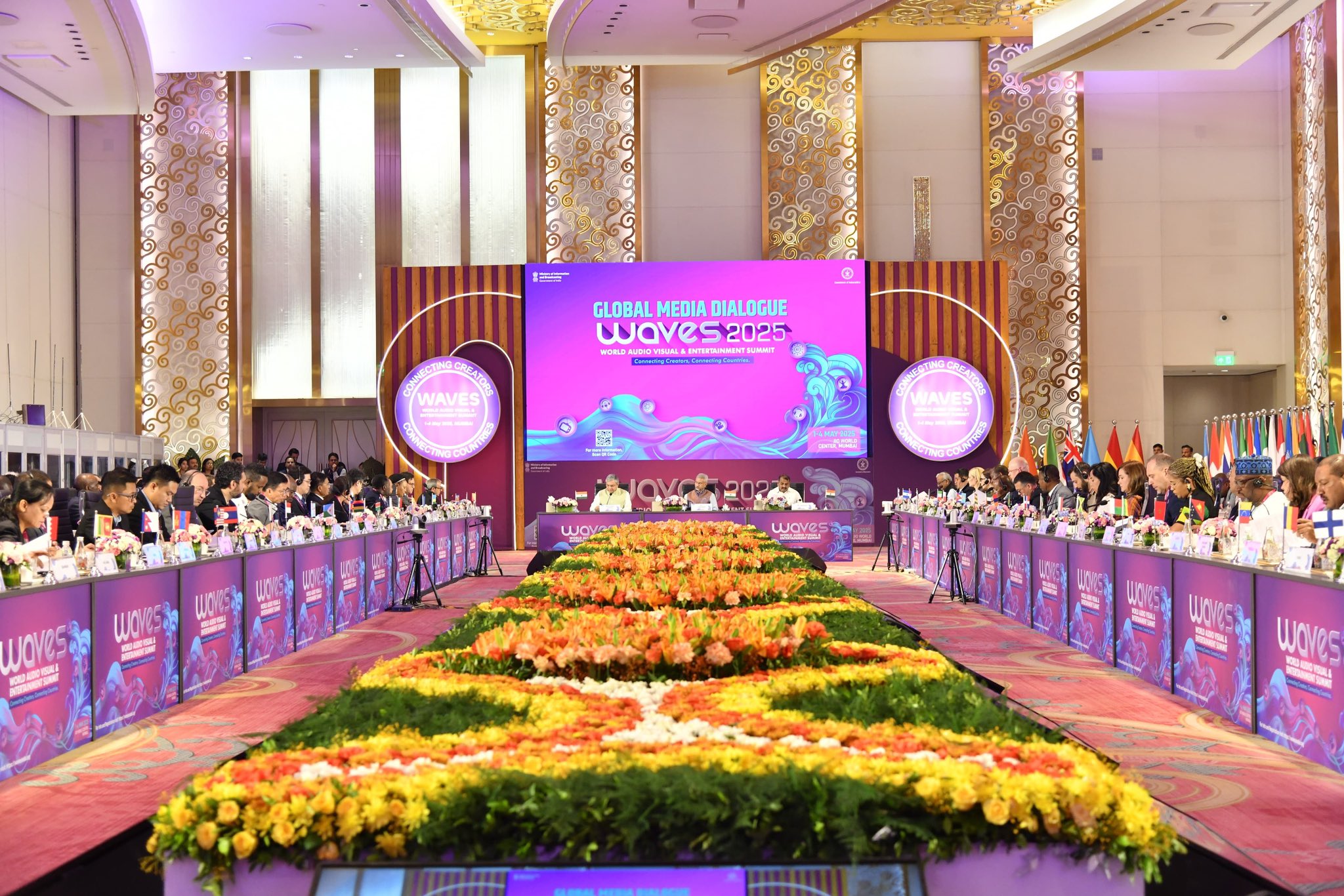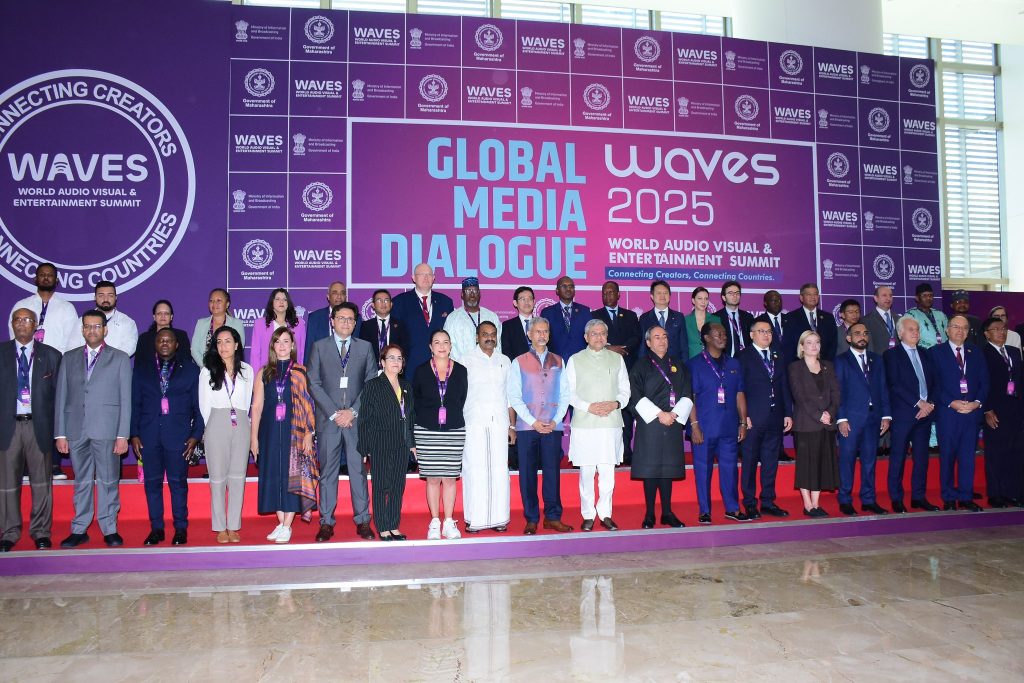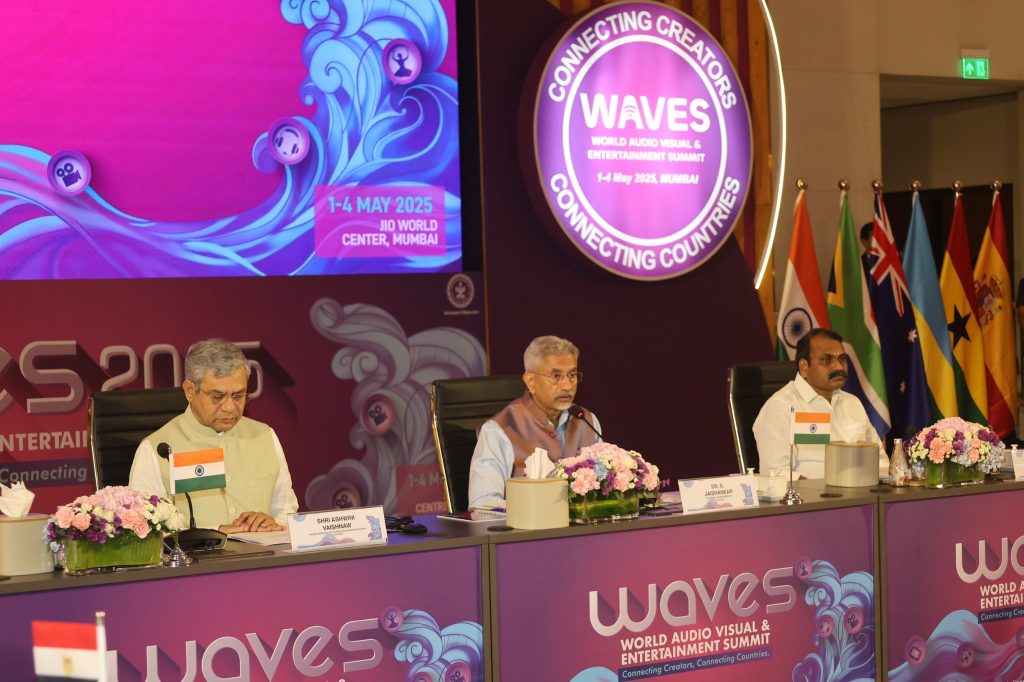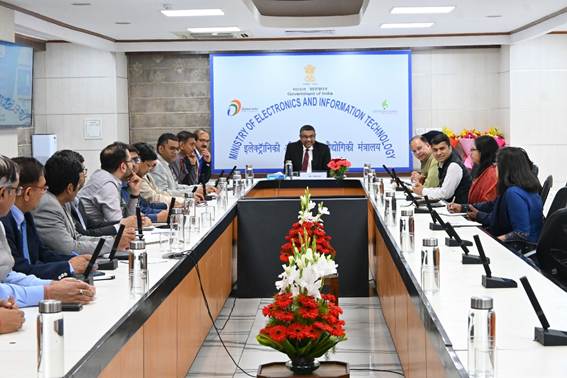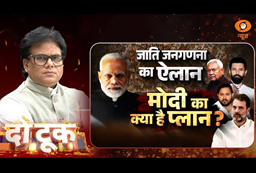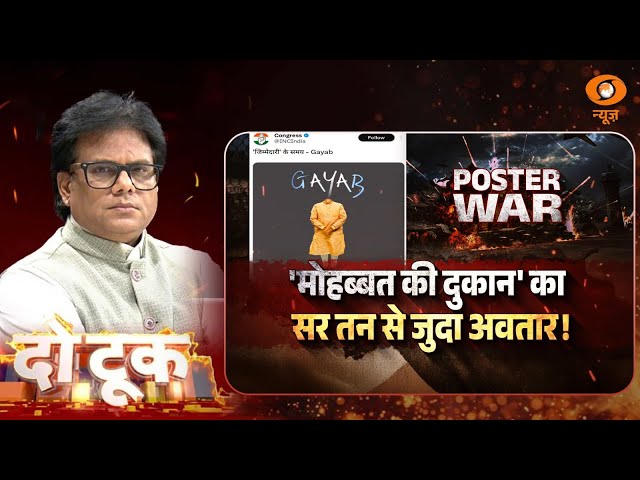The inaugural Global Media Dialogue, held as part of the World Audio Visual and Entertainment Summit (WAVES 2025) in Mumbai, brought together delegates from 77 countries to reaffirm the role of media and entertainment in advancing global peace, cultural understanding, and inclusive development.
The dialogue culminated in the adoption of the Global Media Dialogue 2025 Declaration, a joint statement of intent outlining aspirational commitments to foster creativity, cultural exchange, and technological innovation in a post-pandemic world.
“We, the representatives of governments from across the world, convened in India to reaffirm the critical role of media and entertainment in fostering global harmony,” the declaration said.
Speaking at the summit, External Affairs Minister Dr. S. Jaishankar described WAVES 2025 as a “microcosm of the global community,” bringing together policymakers, creators, producers, writers, and visual artists to shape a future roadmap for the media and entertainment sector.
He underlined the need for synergy between technology and tradition, saying it was vital to “give voice to our traditions, heritage, ideas, and creativity” while equipping the youth with skills for an era of global creative collaboration. “Innovation is key to the leapfrogging that will build Viksit Bharat,” Dr. Jaishankar said.
He also highlighted the opportunities and ethical responsibilities emerging from new technologies, particularly artificial intelligence (AI). “While AI can enhance market efficiency and creativity, it must be governed by principles of transparency, accountability and inclusivity,” he said.
Key Commitments of the Declaration
The 13-point declaration outlines the shared priorities of participating nations, including:
- Promote diverse voices and inclusive media ecosystems.
- Preserve cultural heritage and support public interest content.
- Ensure affordable, equitable access to media.
- Boost jobs and inclusive growth for youth, women, and marginalised groups.
- Encourage innovation, data privacy, and digital security.
- Support ethical AI use and global content partnerships.
- Uphold media integrity and counter disinformation.
The declaration also reiterated the need for ethical awareness among content creators and consumers, whose roles have become increasingly interchangeable due to the democratisation of digital media.
Union Minister for Information and Broadcasting Ashwini Vaishnaw, in his opening remarks, emphasised the transformative role of culture in driving creativity and connectivity. “Culture inspires creativity, which connects people across borders,” he said.
He called for stronger frameworks to incentivise local content creation and international co-productions. “We must turn the global bridge of creativity into an expressway of ideas,” he added.
India also showcased the success of its Create in India initiative, which identified over 700 creators globally in its first season. Vaishnaw said that the next edition of the challenge would expand to include 25 international languages, opening up new avenues for diverse voices to participate in global storytelling.
The declaration concluded with a reaffirmation of the Sustainable Development Goals (SDGs), placing the media and entertainment industry at the centre of global efforts to advance peace, prosperity, and resilient institutions.
“We encourage both creators and audiences to consider the social, cultural, and ethical implications of their choices,” the declaration said, underlining the transformative potential of media in building more empathetic and interconnected societies.










